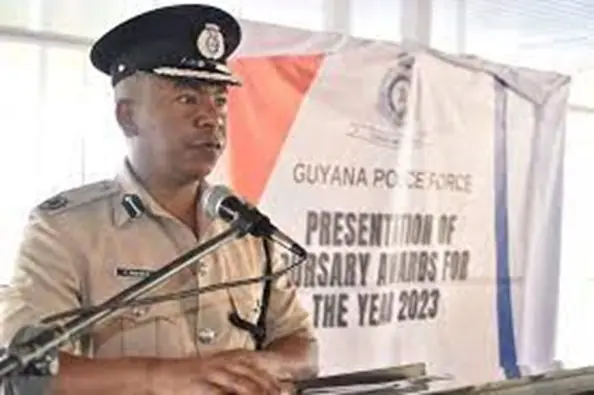Jamaica’s Domestic Violence (Amendment) Act seconded by UNAIDS
Jamaica has taken a significant step towards social reform in the nation, with the Domestic Violence (Amendment) Act which was applied to the legislative system on Monday.
23rd of January 2024

Jamaica has taken a significant step towards social reform in the nation, with the Domestic Violence (Amendment) Act which was applied to the legislative system on Monday. The new legislation aims to provide protection to those affected by gender-based violence in the nation.
UNAIDS has come out in support of this move, seeing it as an essential step for the progression Jamaica’s societal structure.
Winnie Byanyima, the Executive Director of UNAIDS, stated the following, “UNAIDS welcomes the commitments made by Jamaica to expand protections to tackle gender-based violence. Determined action is essential across the Caribbean and Latin America, and across the world, to break the vicious cycle of violence, abuse and inequality. Survivors must be heard, and justice must be done.”
“To protect women and girls’ health, it is essential to protect women and girls’ human rights.”
The government has assured citizens that the Domestic Violence (Amendment) Act will address the issue of domestic violence in Jamaica and ensure that victims of such crimes are protected by the law and the authorities.
Gender Affairs Minister Olivia Grange, gave her perspective on the matter, “This government, and indeed the whole House, has demonstrated its commitment to preventing and punishing acts of domestic violence through the passage of these important amendments which will, among other things, allow the Court to issue Protection Orders and impose a penalty of up to one million dollars for a breach of a Protection Order, up from a maximum of J$10,000.”
Grange added that the amended act allows for a perpetrator to be sentenced to one year in prison, thus protecting victims from possible property damage, harassment and physical or psychological harm.
These provisions have been considered extensively by the relevant authorities and are intended to penalize perpetrators in the appropriate manner, so as to dissuade them from committing serious or violent crimes.
Grange went on to say that, “Alongside the new legal changes, the Government of Jamaica has also committed to continuing to implement other policies to support survivors including a gender-based violence helpline, legal support, shelters, intervention centres at police stations, and special training for members of the police force and other service provider.”
Luisa Cabal, the UNAIDS Regional Director for Latin America and the Caribbean, was quite pleased with this development and spoke highly of the government’s efforts to align parliamentary support with necessary changes in policies and legislations that protect victims of gender-based violence in the nation.
She went on to highlight the critical role that the police, legal apparatus, civil society and law enforcement play in protecting women and girls from the evil of gender-based violence.
The new legislation also allows various people to apply for a Protection Order, which includes but is not limited to a spouse, parent or any individual that has a relevant claim.
By doing so, the government has ensured that individuals who are at risk, get the help they need and can seek protection with out discrimination of any sort.
The legislation also allows children’s advocates to apply for a Protection Order in cases where a child is put at risk due to the questionable conduct of a perpetrator.
Latest
- National School Meals Programme rejects claims of substandard vegetarian meal in Antigua and Barbuda
-
LIAT Air Expands Caribbean Network with New Routes to Antigua and Montego Bay -
US withdraws advisory on St. Kitts and Nevis, gives green flag to its Citizenship Programme -
CARIFTA Games 2026 set to take place in Grenada from April 4-6 -
West Indies Women’s Cricket team announced for T20 series against Sri Lanka in Grenada
Related Articles

6th of December 2024

5th of December 2024

27th of November 2024

22nd of November 2024

26th of November 2024

25th of November 2024

20th of November 2024

18th of November 2024
